Today, there is important news from the Pokrovsk direction.
Here, Russia’s all-out push to seize Myrnohrad ended in disaster, leaving Russian forces exhausted, overextended, and critically vulnerable. Recognizing the scale of the catastrophe, Ukrainian forces immediately seized the opportunity, launching a rapid counterattack that shattered Russian defenses and triggered the collapse of the next major Russian stronghold on the line.
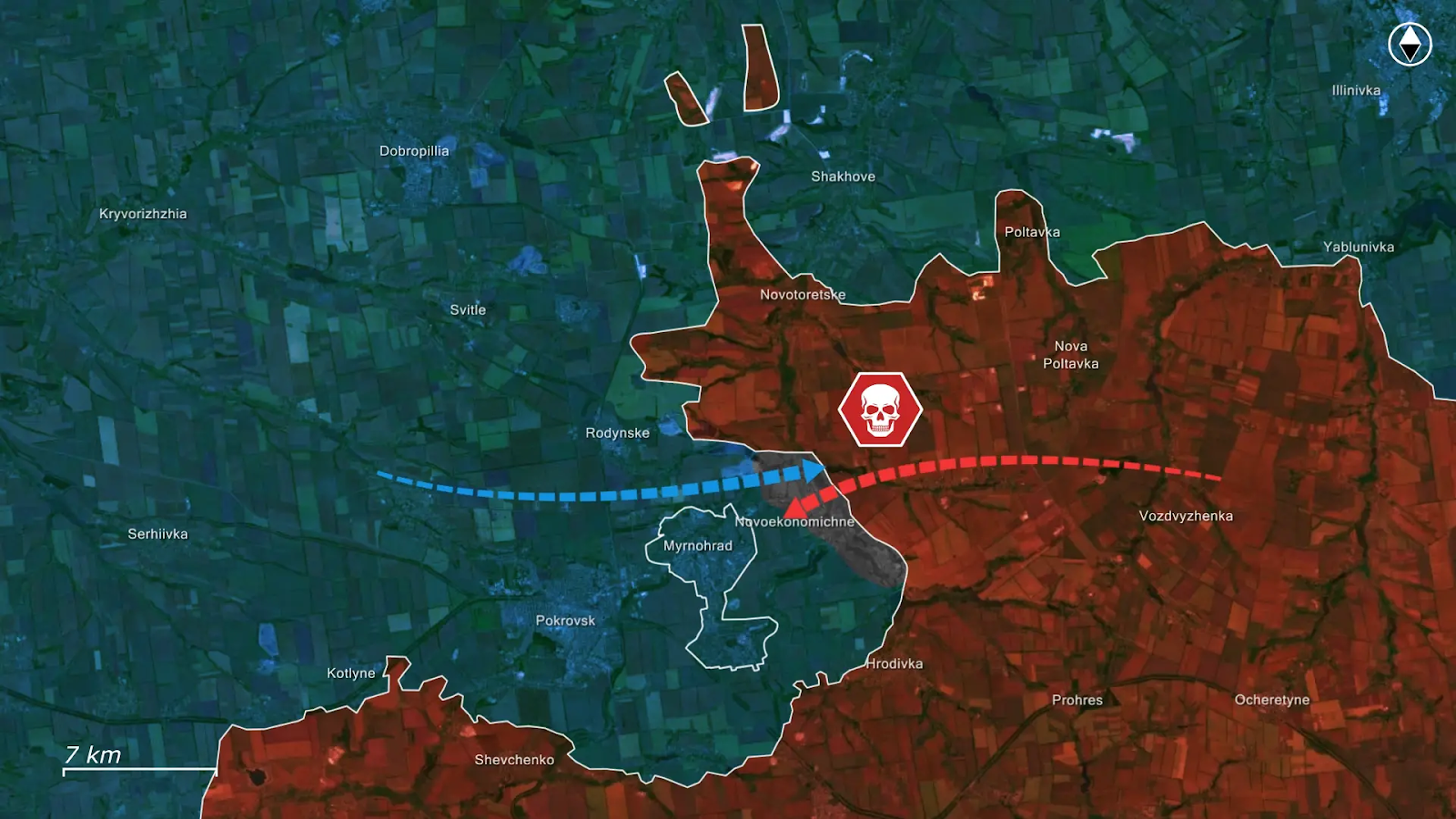
With the spearhead toward Dobropillia faltering, Russian forces received urgent orders to widen the salient by striking into Myrnohrad.
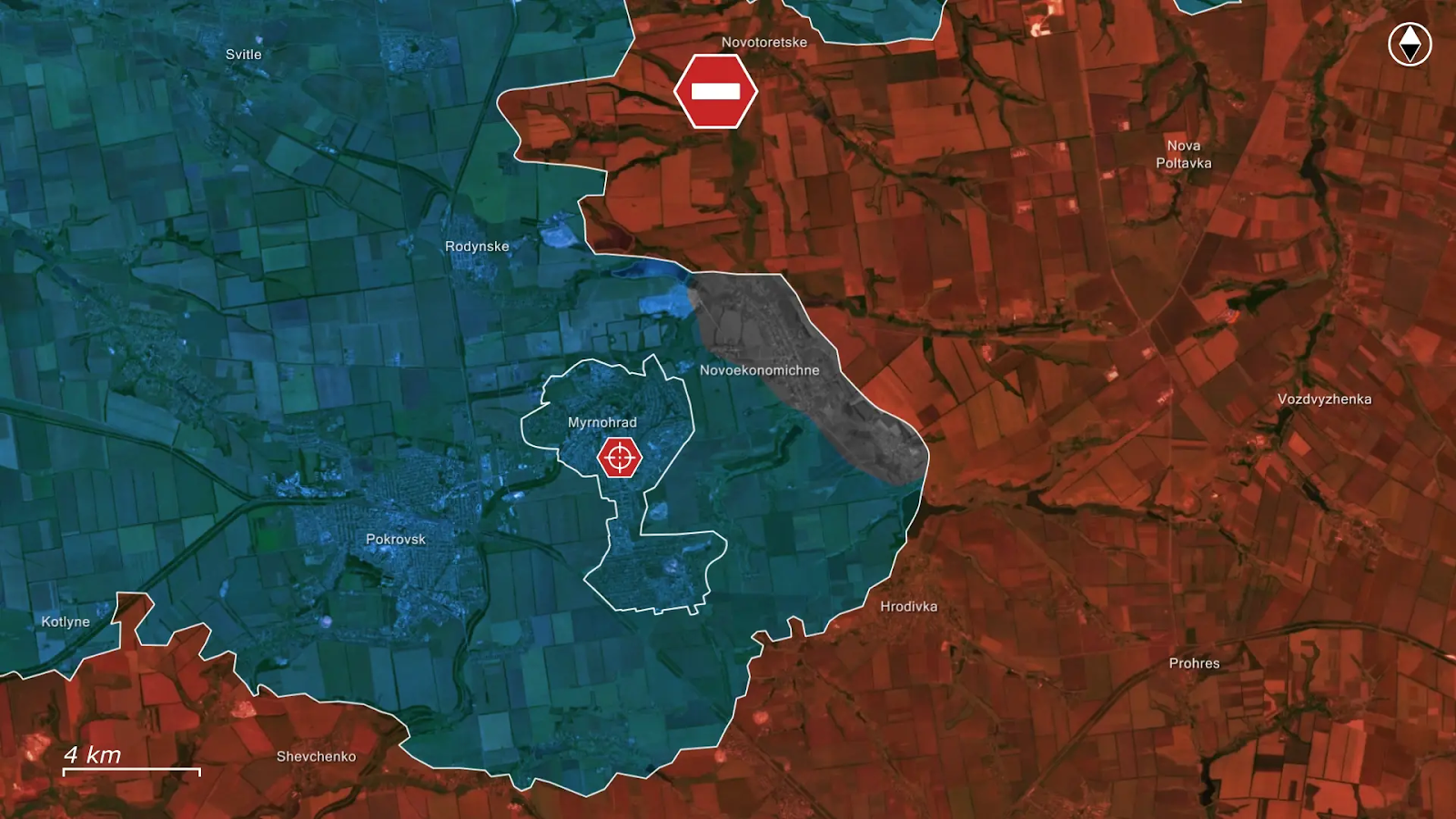
The new push quickly escalated into waves of frontal mechanized assaults, as Myrnohrad forms part of the heavily fortified Pokrovsk agglomeration. Pressed for speed, Russian commanders reverted to an outdated heavy-armor approach, unable to devise fresh tactics. Whatever armored vehicles remained were hastily assembled and thrown into the offensive.
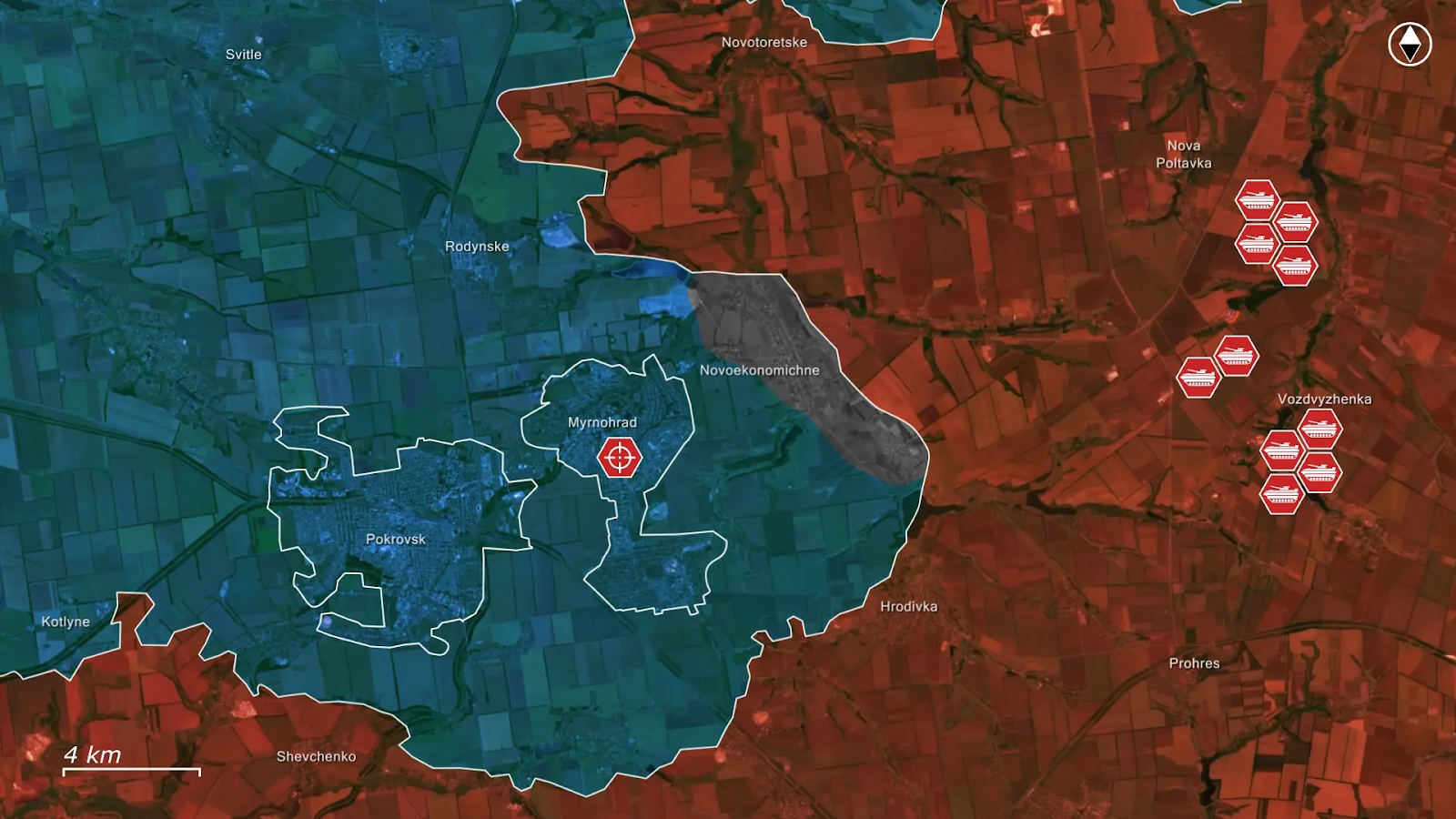
First, Russian troops attempted to push through via Novoekonomichne, using two armored vehicles. Both were destroyed by Ukrainian FPV drones, one near the ventilation shaft of a local mine, the other west of the water reservoir, after which the Ukrainian troops eliminated the infantry that had advanced alongside them. To the north, in the Razine area, another four Russian vehicles were destroyed, while a further four were neutralized near Vozdvyzhenka to the east, long before reaching the actual frontline. Some Russian soldiers managed to set foot in Malynivka but were wiped out by Ukrainian drone strikes as well. Analysts connected this surge in activity to the arrival of Russian marines from the 155th Separate Naval from Sumy, but their presence proved insufficient against Ukrainian defenses.
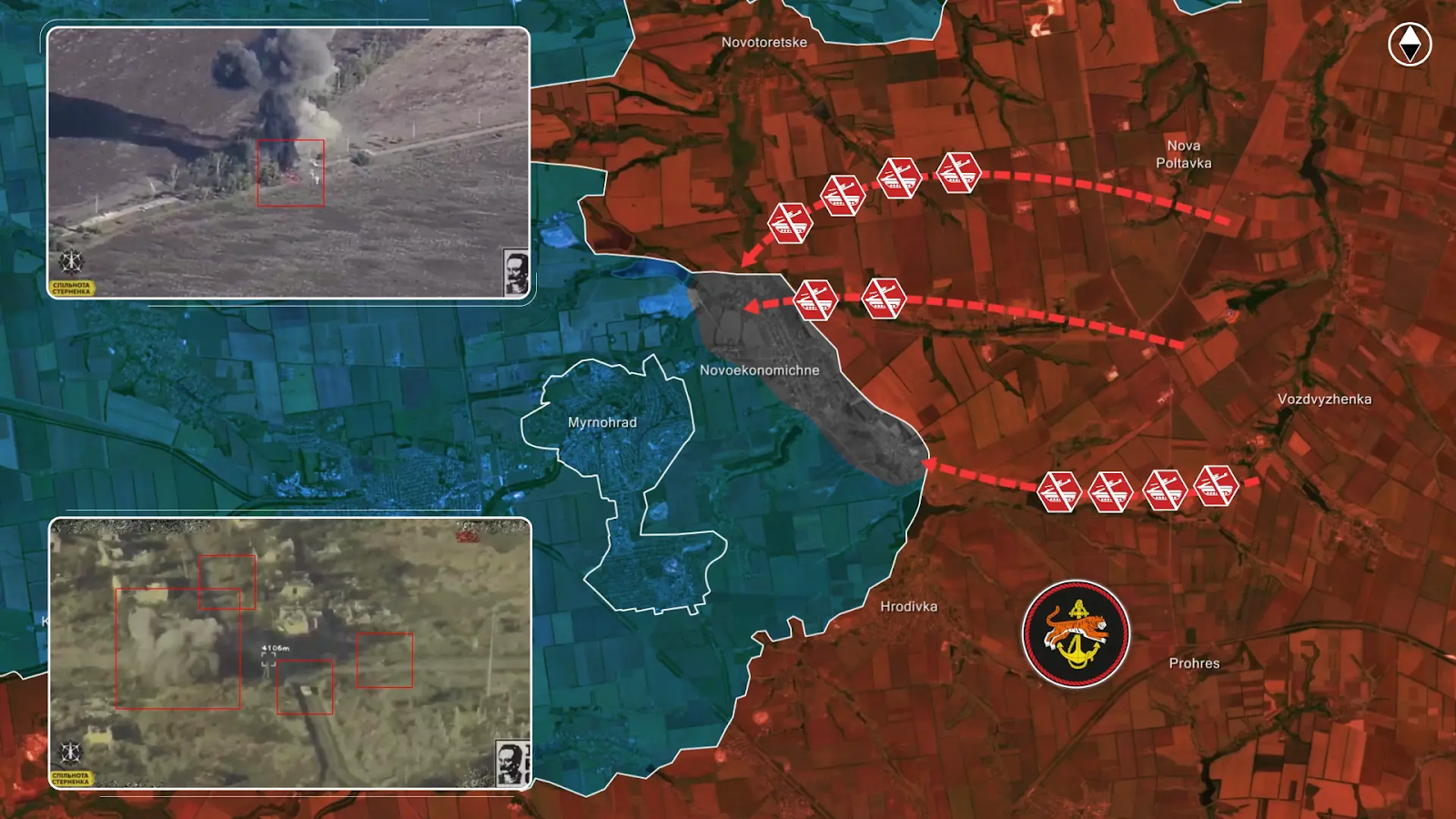
If we look at the topographic map, we will see how terrain played a decisive role in blunting the Russian assault. Ukrainian forces held the high ground provided by two terrikons, which dominate the local landscape. Combined with the extensive infrastructure of the mines themselves, this gave defenders both cover and superior visibility. Constant drone surveillance and fire control from these elevated positions enabled Ukraine to intercept Russian movements before they reached the frontline. Most of the vehicles were destroyed during the approach stage, underscoring how aerial reconnaissance and situational awareness remain fundamental to successful defense. With armored columns cut down before they could deploy infantry effectively, the assault collapsed into disorganized skirmishes that Ukrainian forces decisively won.
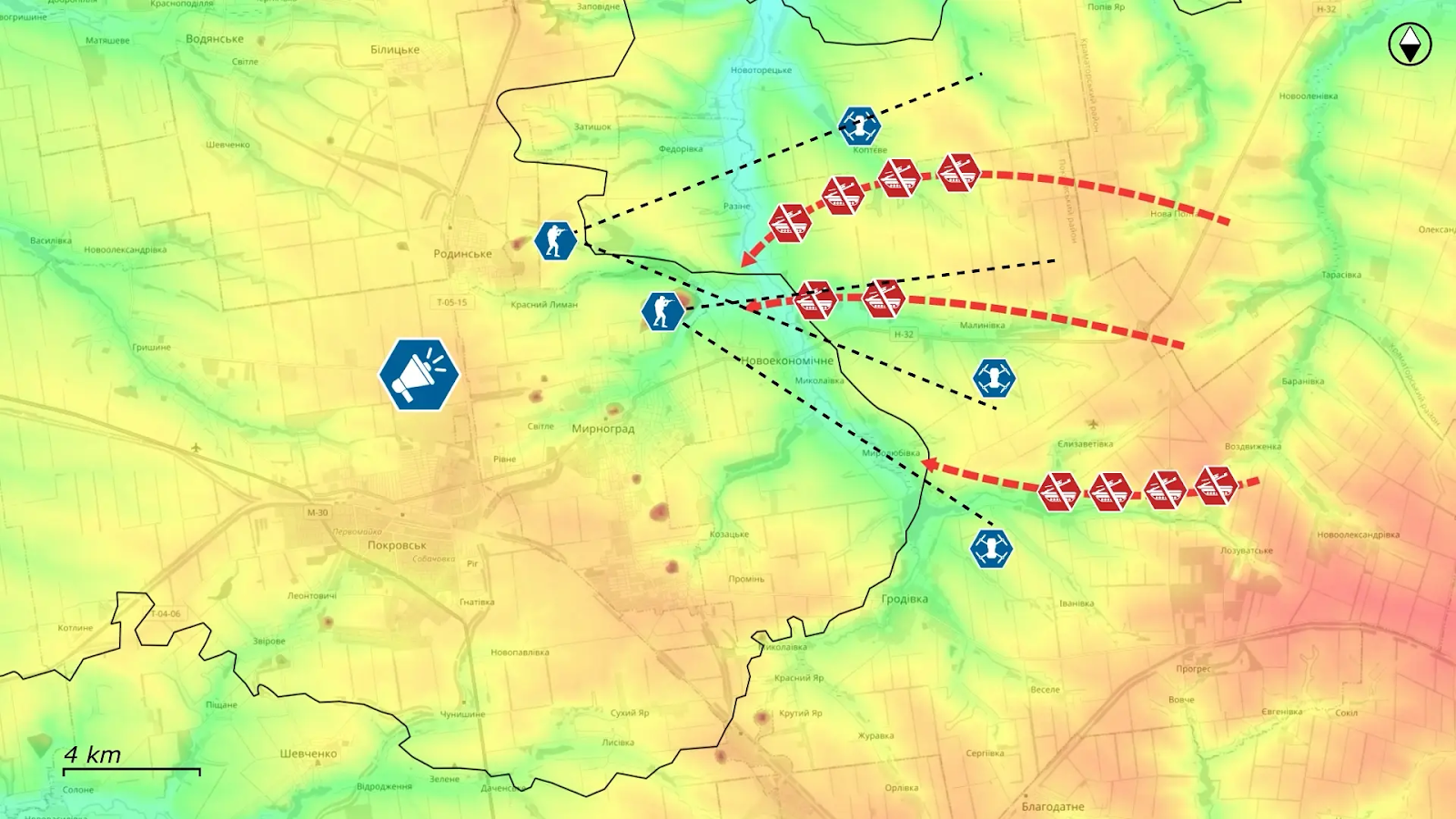
The destruction of 10 armored vehicles and over 100 Russian soldiers in these failed attempts was not merely a tactical setback, as they had clearly gathered as a reserve force meant to achieve a breakthrough on Myrnohrad’s outskirts. Establishing even a foothold there would have created major complications for Ukraine’s defense, but instead, the loss of so much scarce equipment in a single series of battles effectively exhausted Russia’s short-term reserves in the sector.
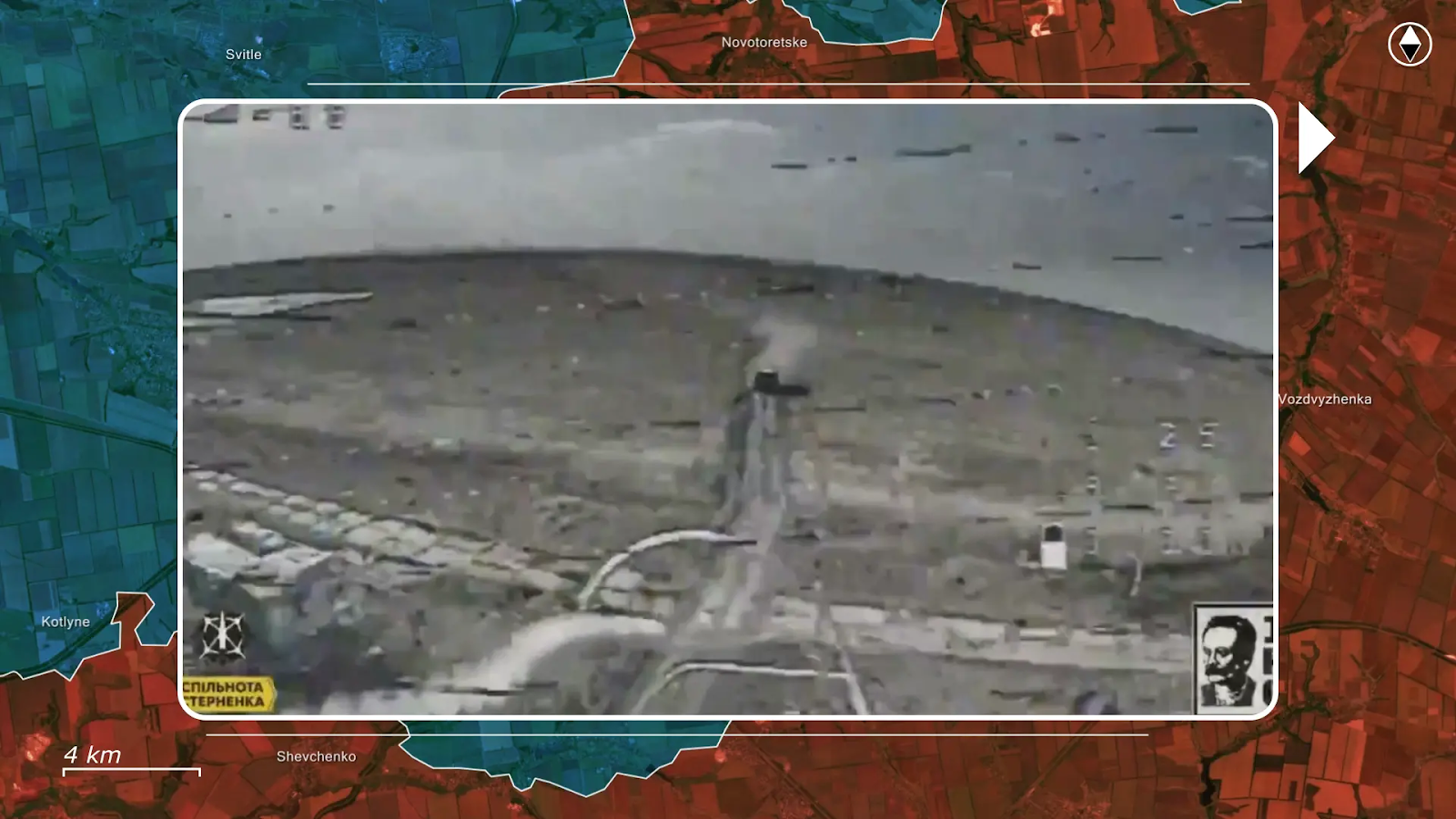
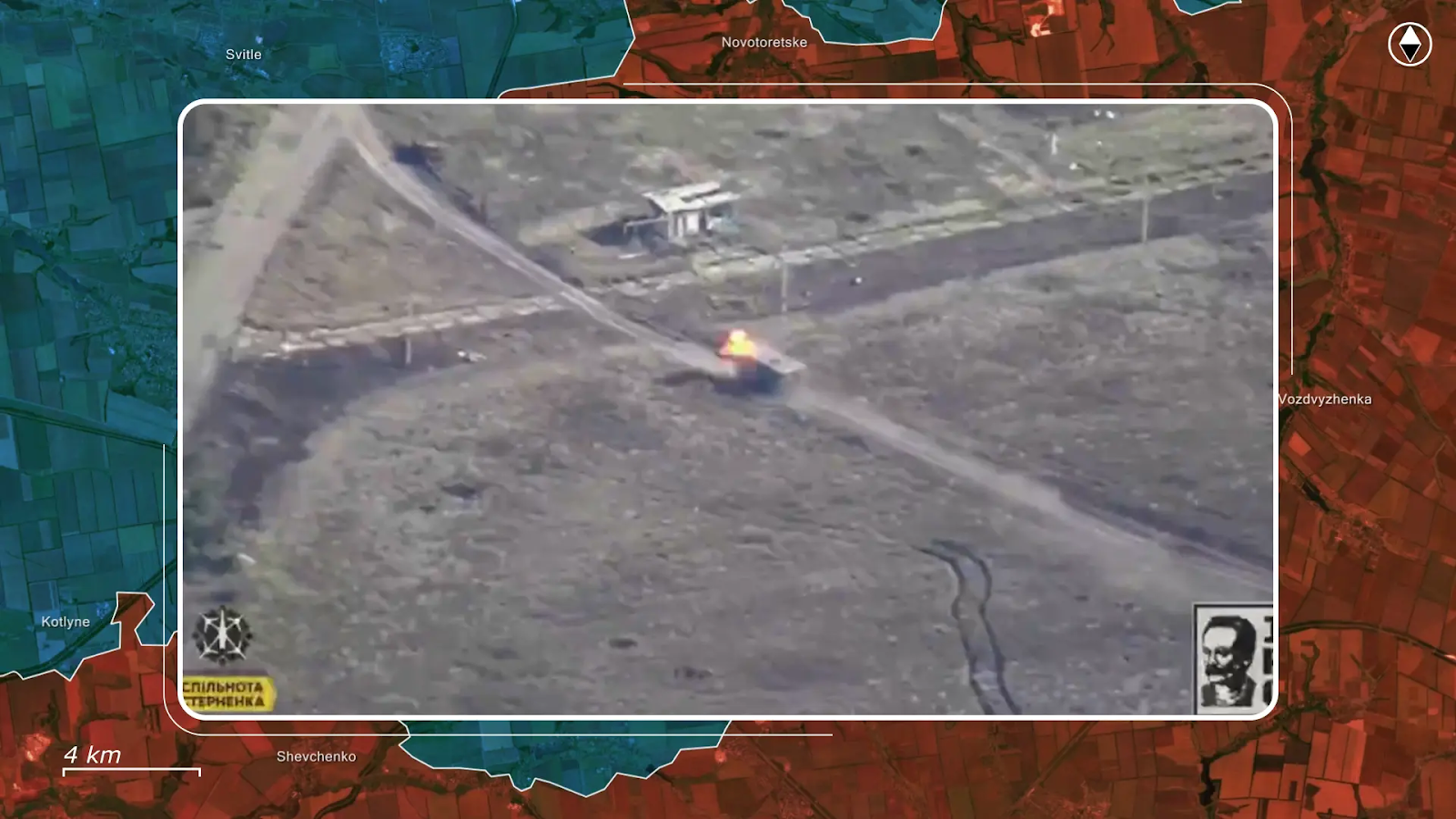
With their armored punch blunted and infantry weakened, an opportunity emerged for Ukraine to move from defense to offense, and Ukrainian commanders wasted no time in exploiting this window. The General Staff confirmed that the 425th Skala Regiment launched an assault on Novoekonomichne, a settlement lying on the critical T0504 highway linking Pokrovsk, Myrnohrad, and Kostiantynivka.
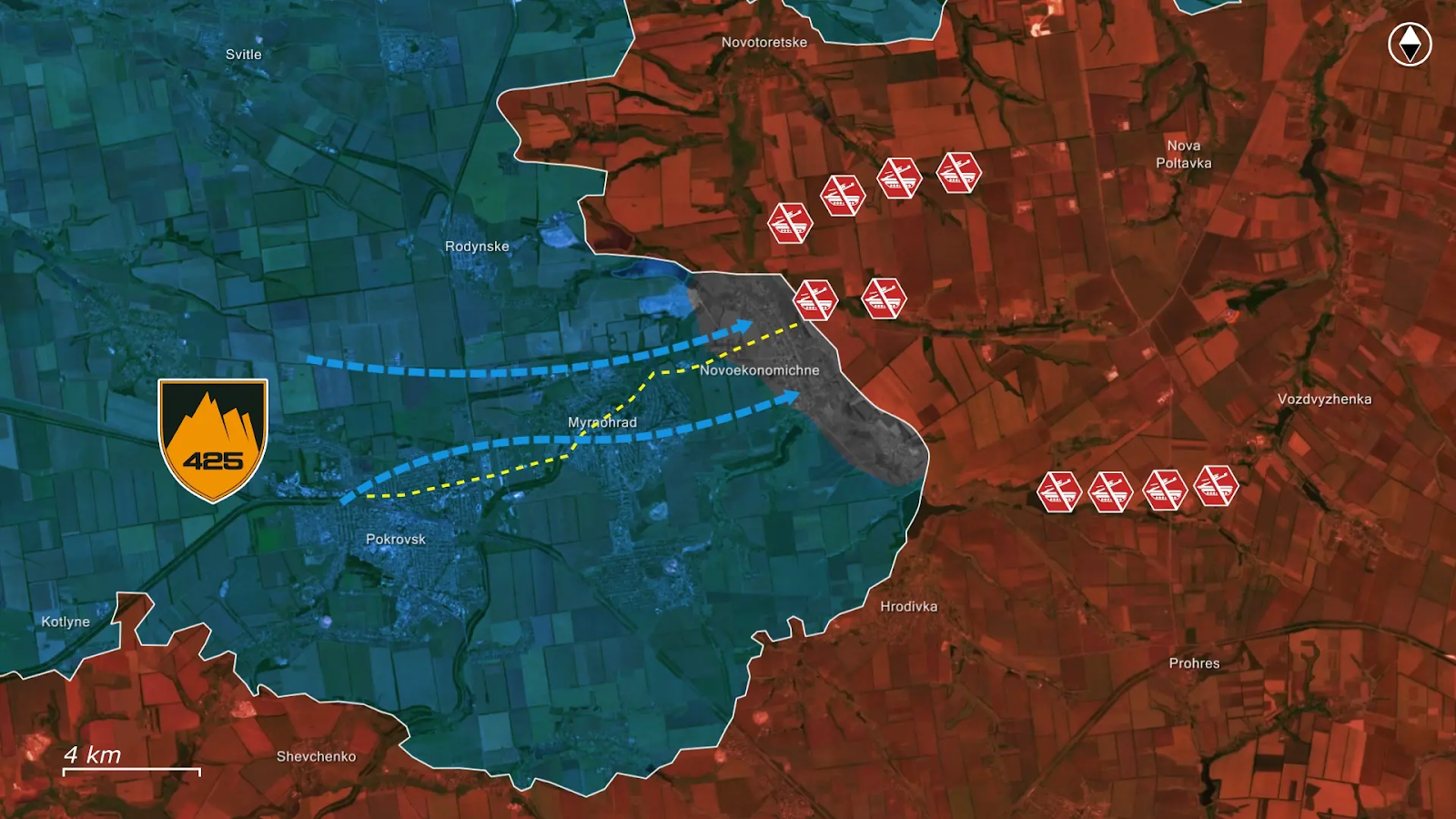
Ukrainian drone operators first struck Russian positions in the village, softening up resistance. Assault groups then entered and cleared Novoekonomichne house by house, and after two weeks of intense fighting, it was liberated, and the Ukrainian flag was raised.
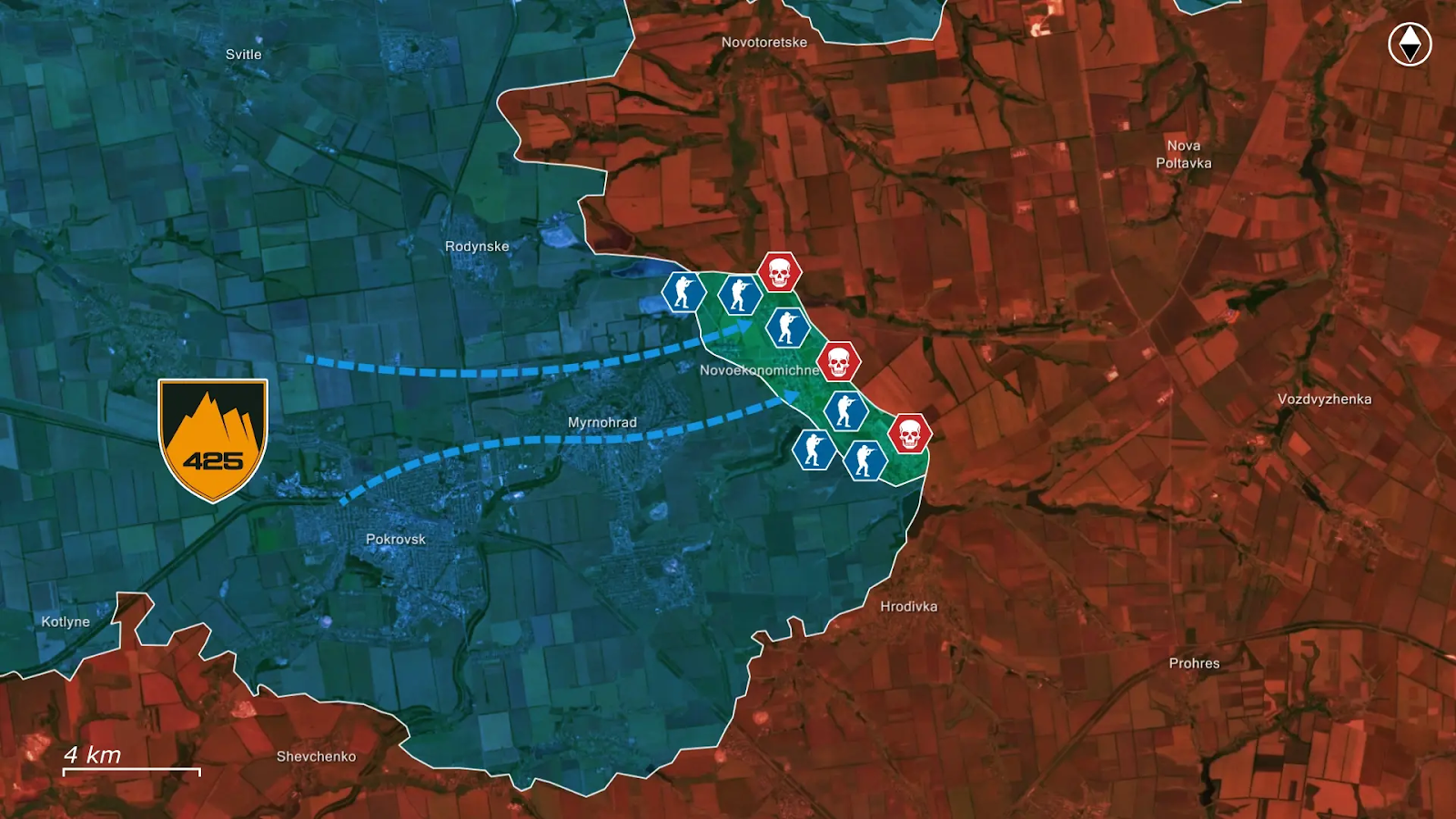
Previously considered a grey-zone settlement, this recapture helps stabilize Ukraine’s eastern flank near both Pokrovsk and Myrnohrad, denying Russia another staging point for its sabotage and reconnaissance groups. Most importantly, securing Novoekonomichne strengthens Ukraine’s position against the Russian salient near Dobropilia, narrowing the potential avenues of attack available to enemy forces and creating broader implications for them. With the Russians once again forced to draw in reinforcements from other sectors, Ukraine has shown that it cannot only hold against assaults but also turn the tables when opportunities arise.
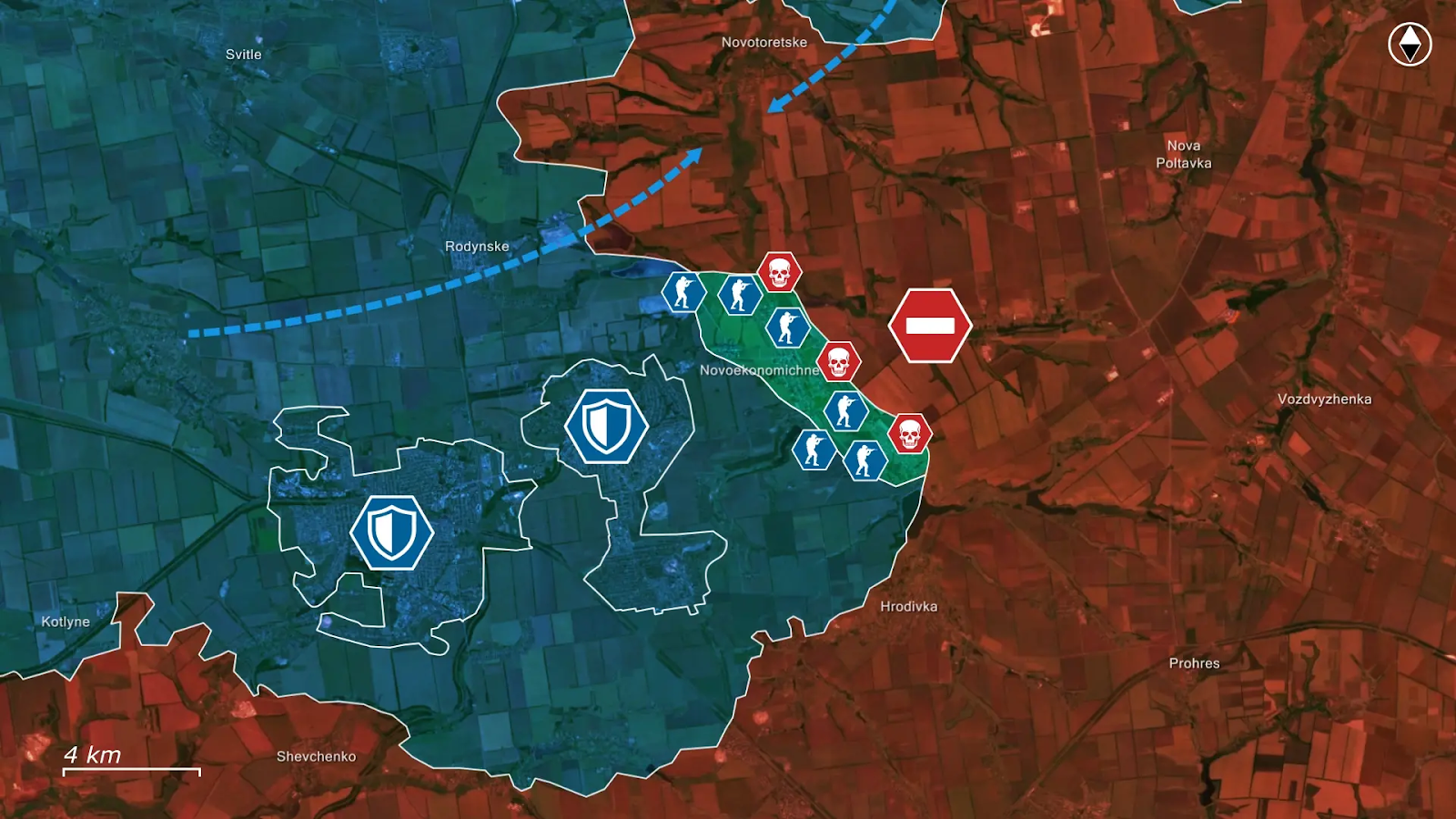
Overall, the failure to reach Myrnohrad illustrates the limits of Russia’s capacity to sustain mechanized operations. Even with redeployed marines and armored vehicles, Russian forces could not penetrate the Ukrainian defenses and instead suffered another costly defeat. Meanwhile, Ukraine has demonstrated that effective use of terrain, drones, and local counterattacks can not only repel assaults but also regain ground. With Novoekonomichne secured, Ukraine has substantially diminished any chances of the Russian forces to reach Myrnohrad any time soon.
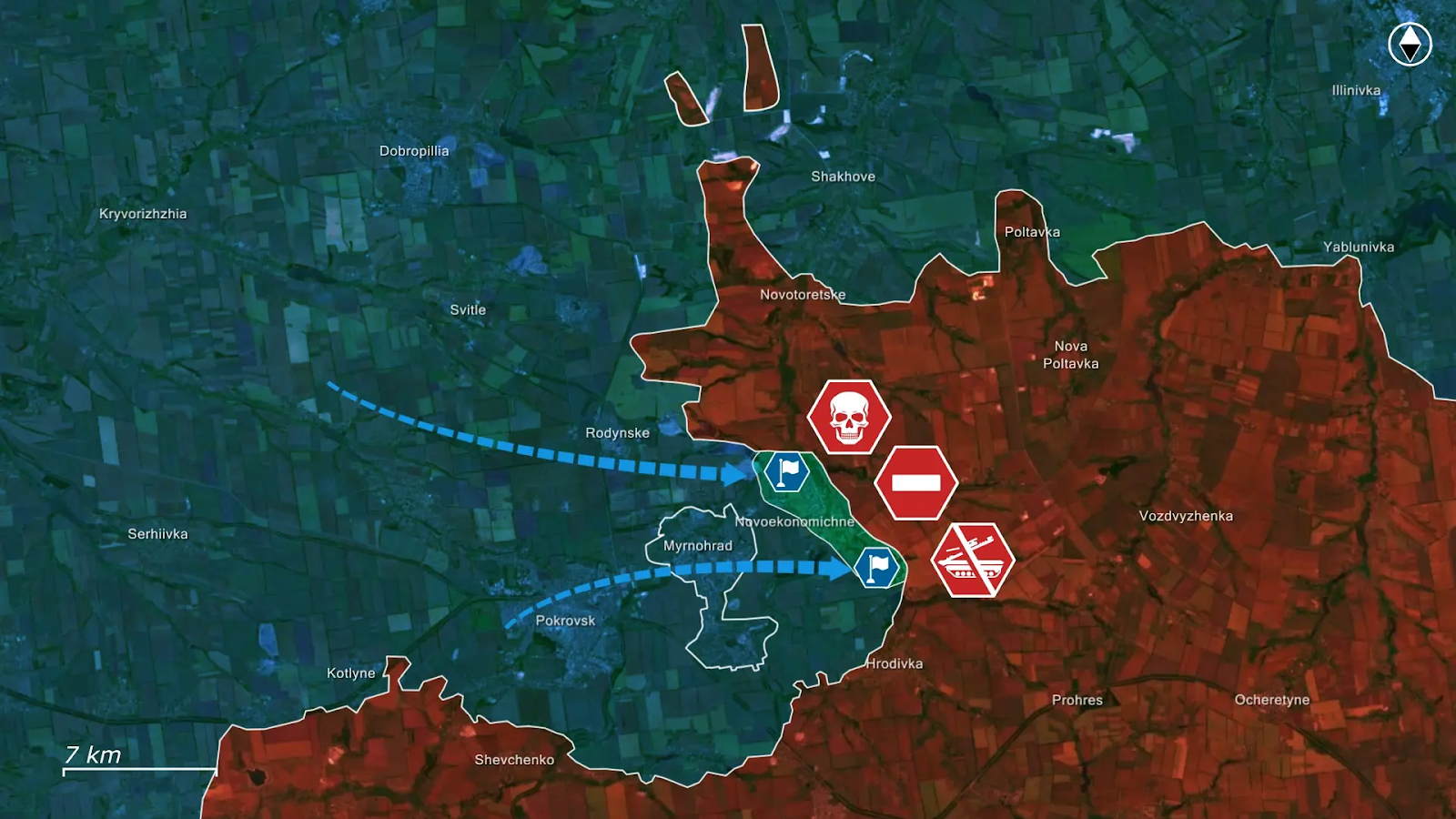


.jpg)
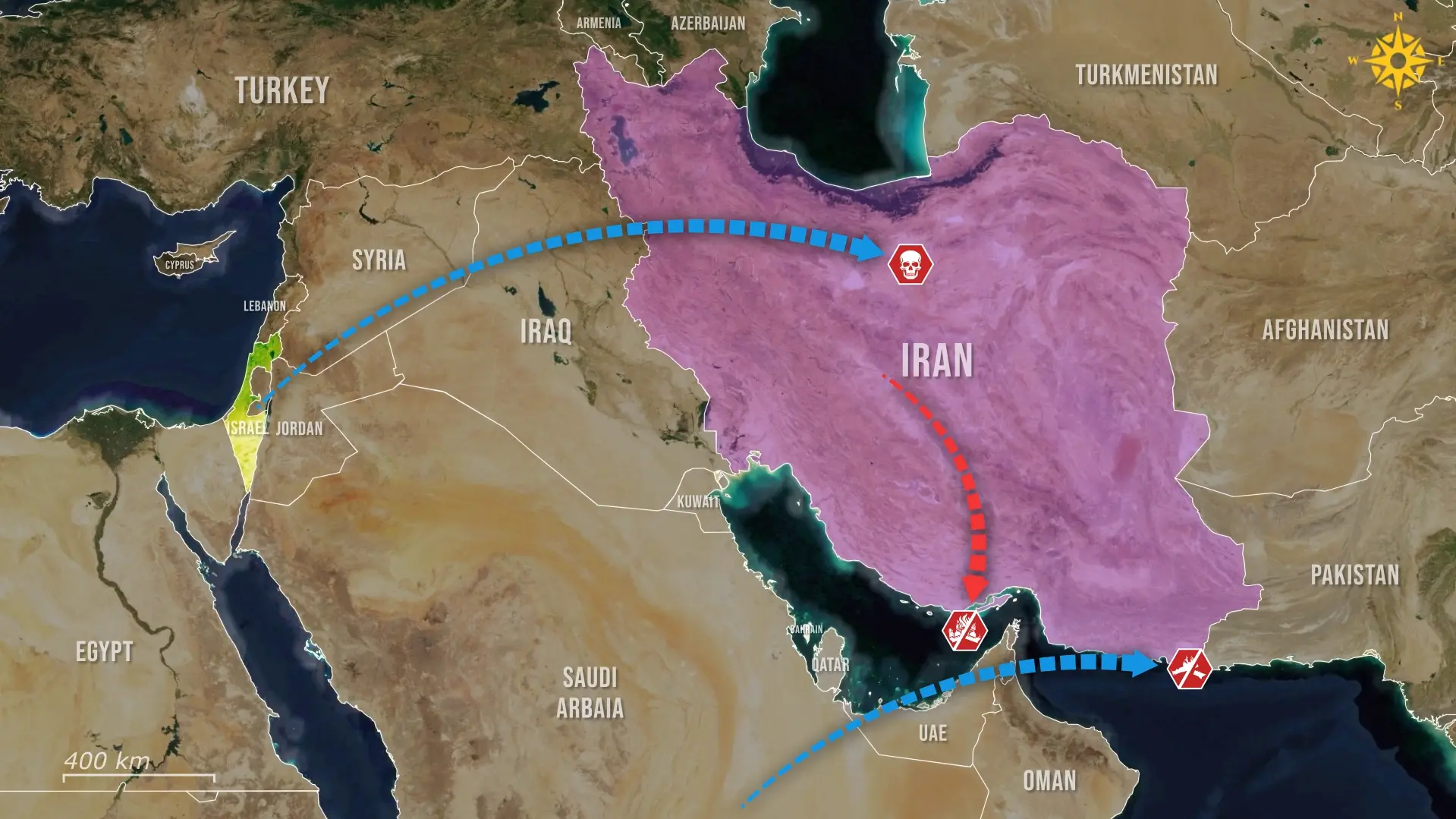
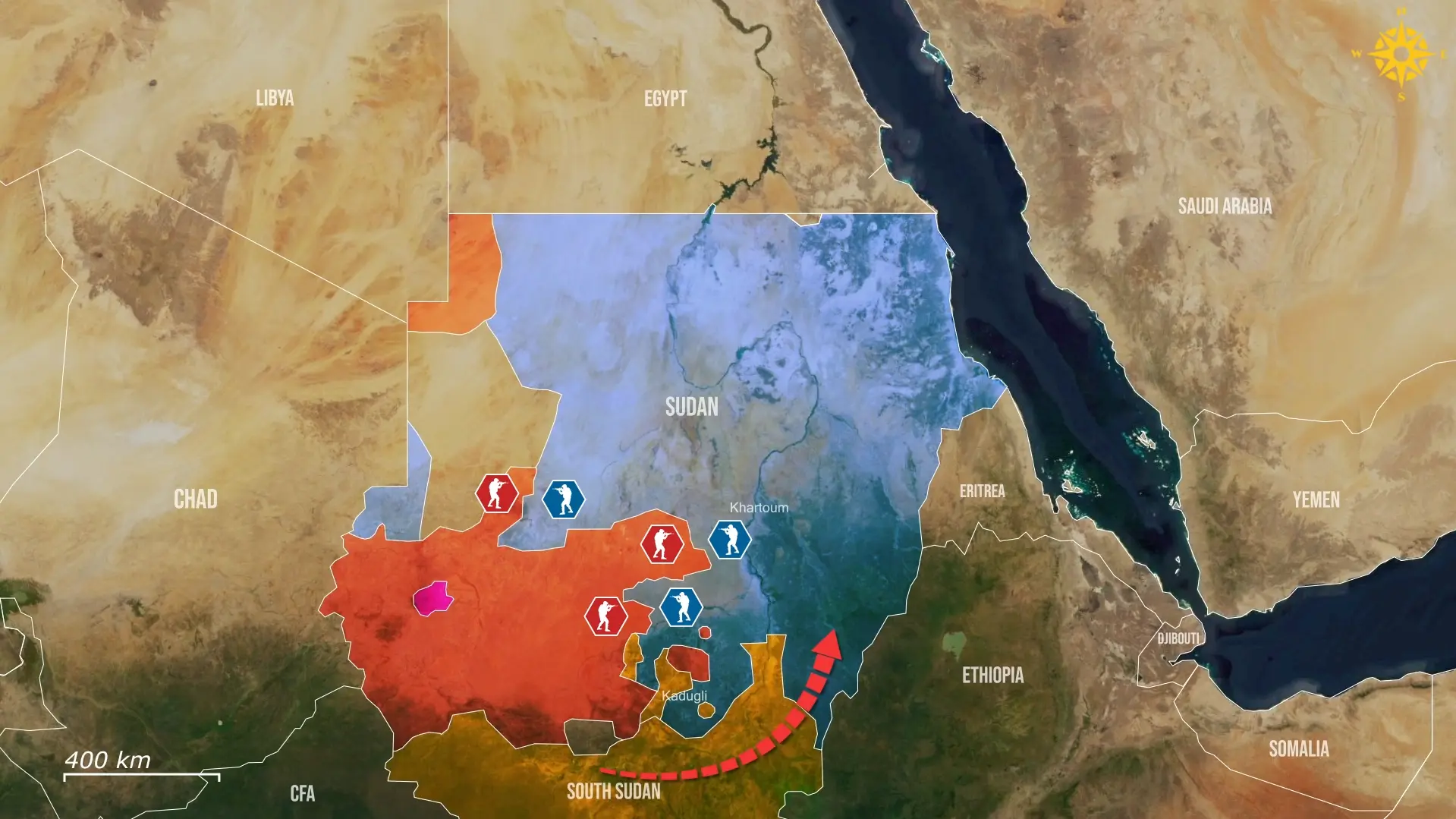
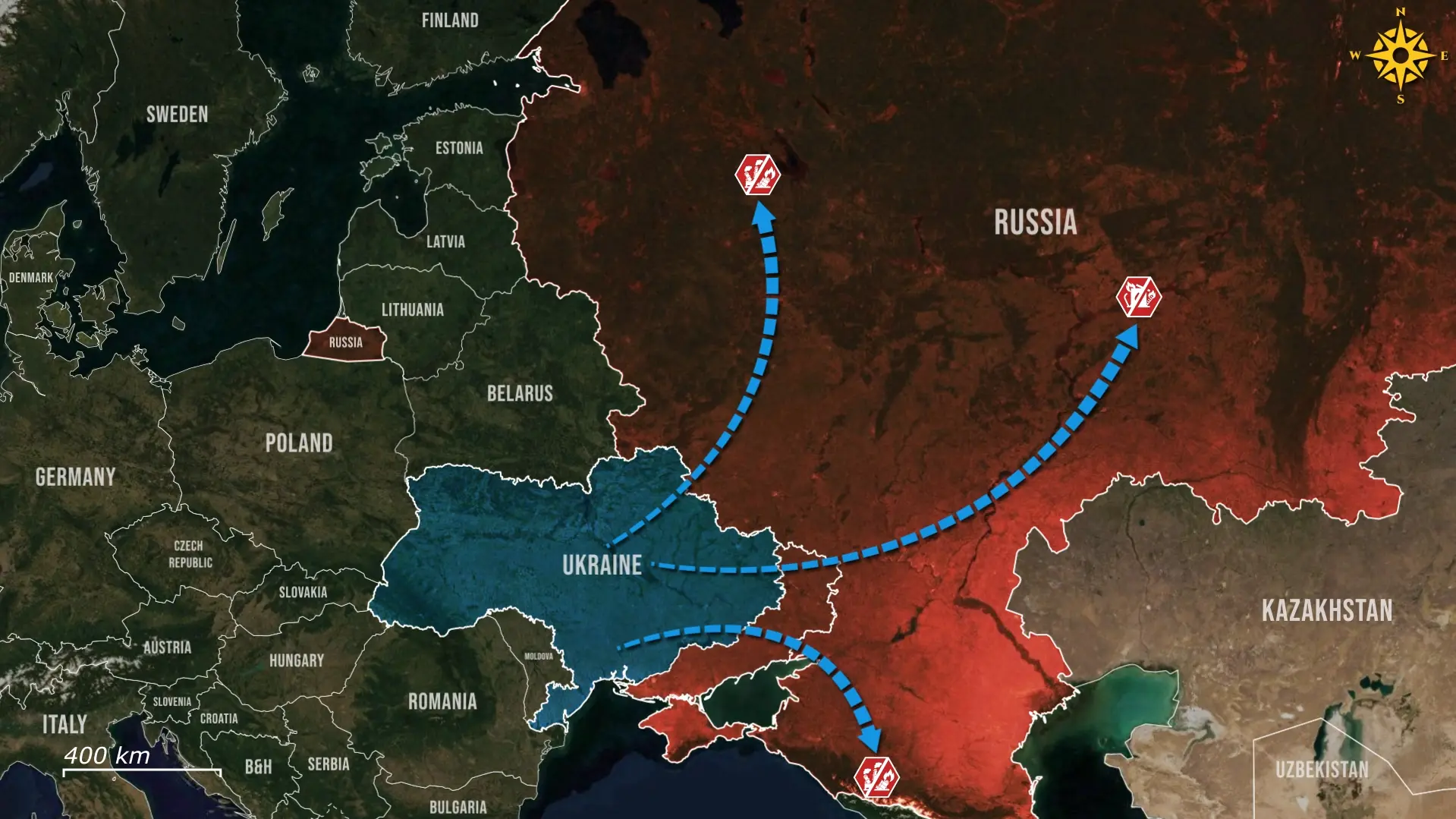
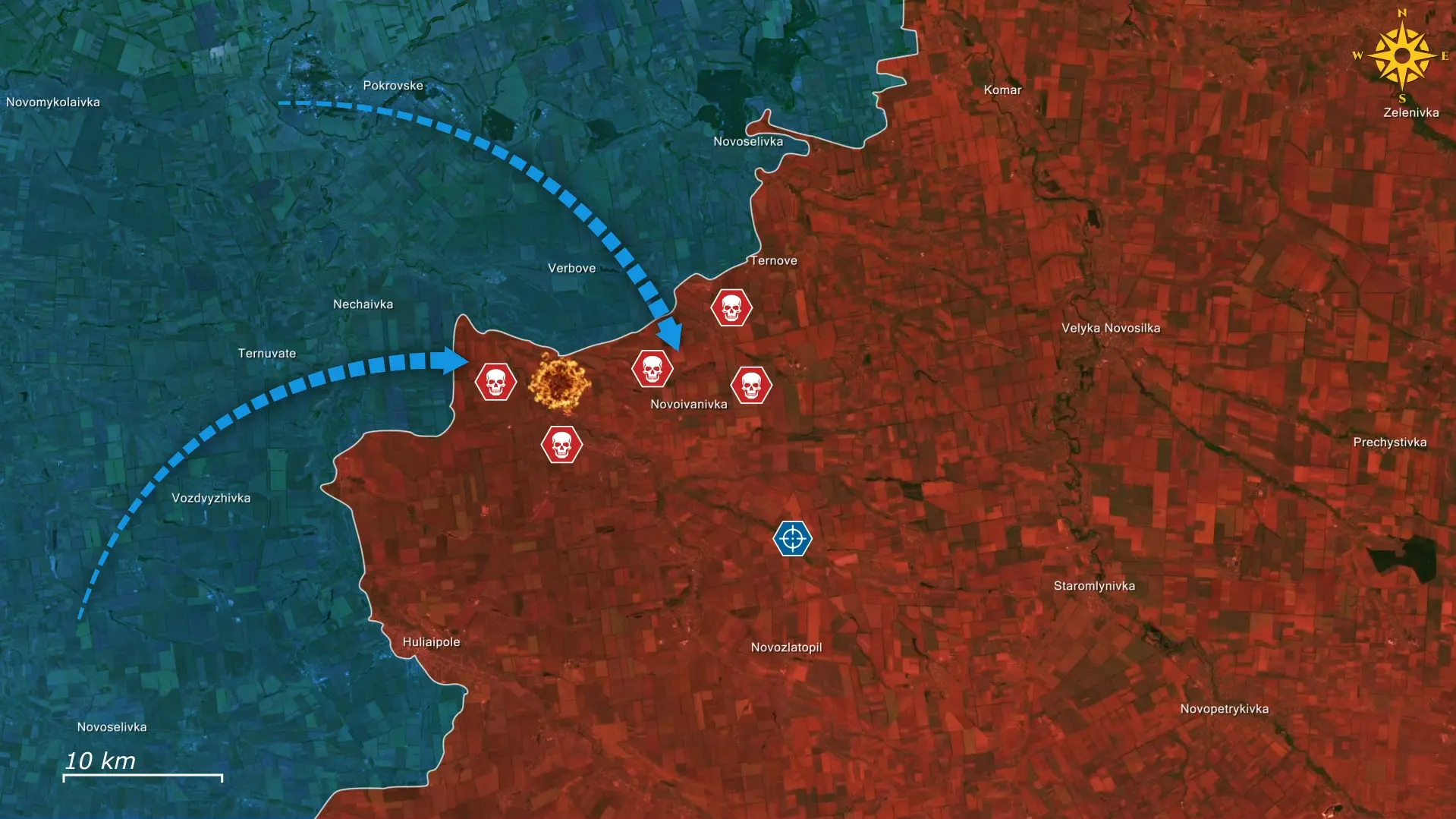
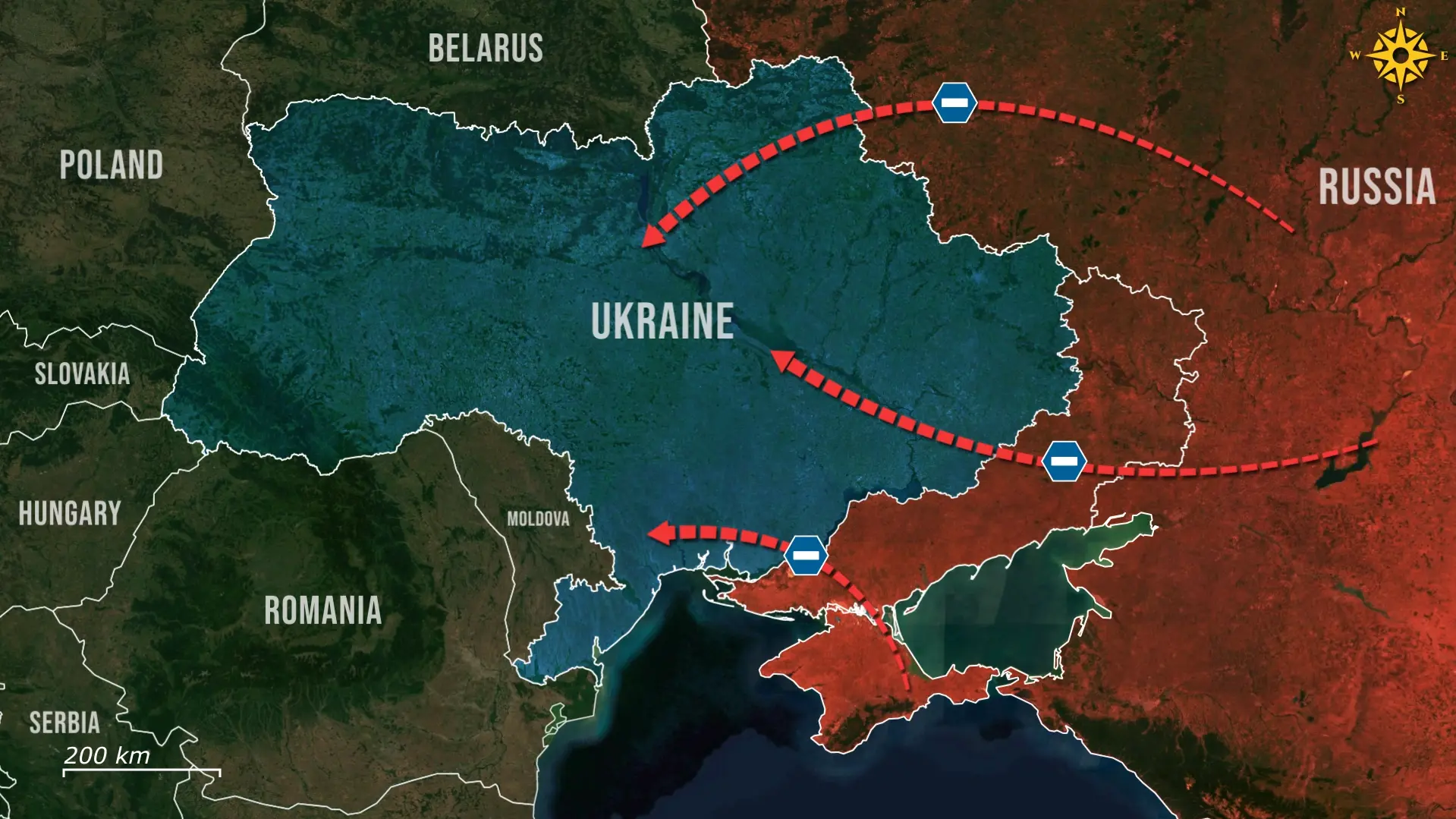
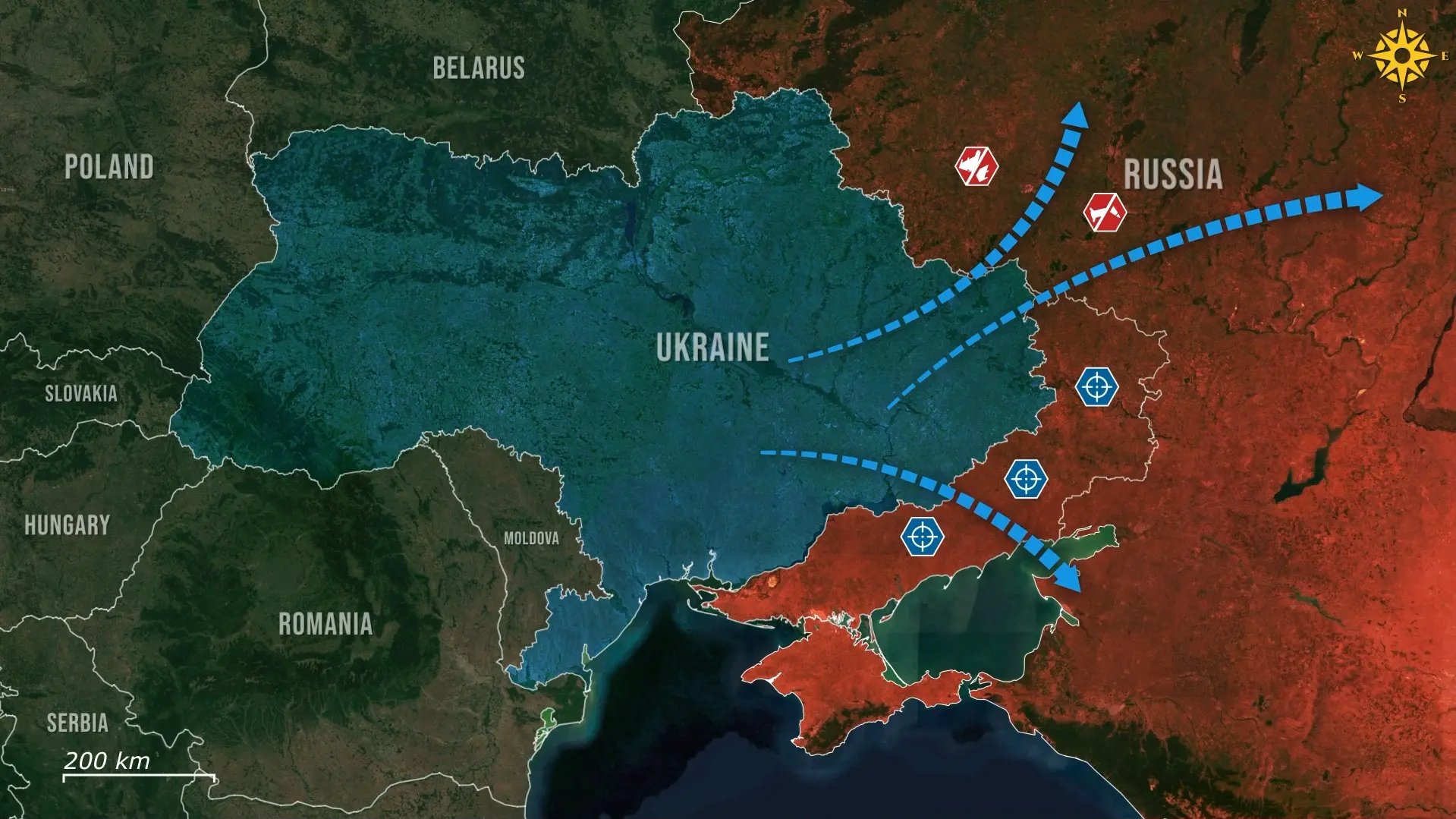
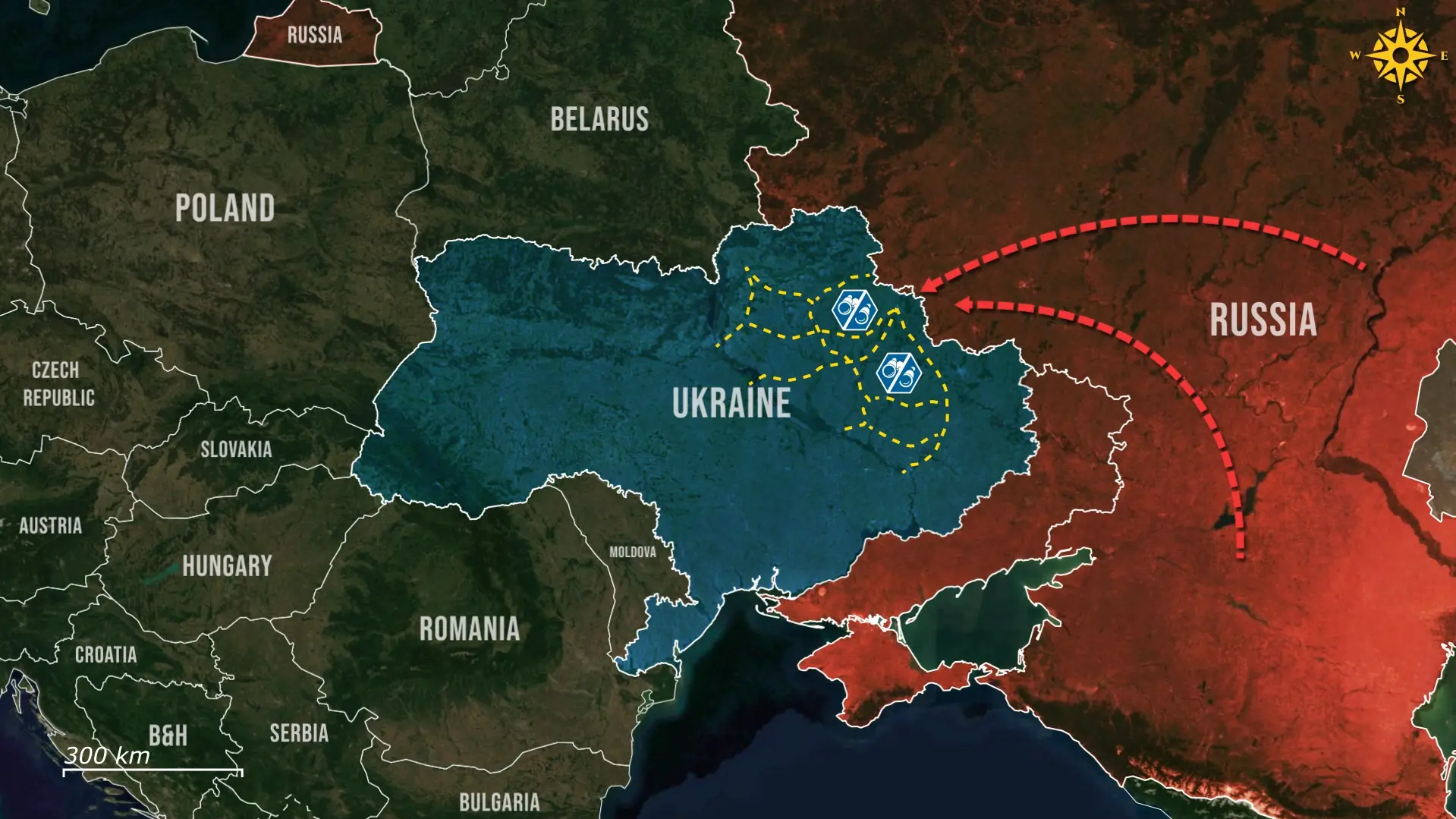
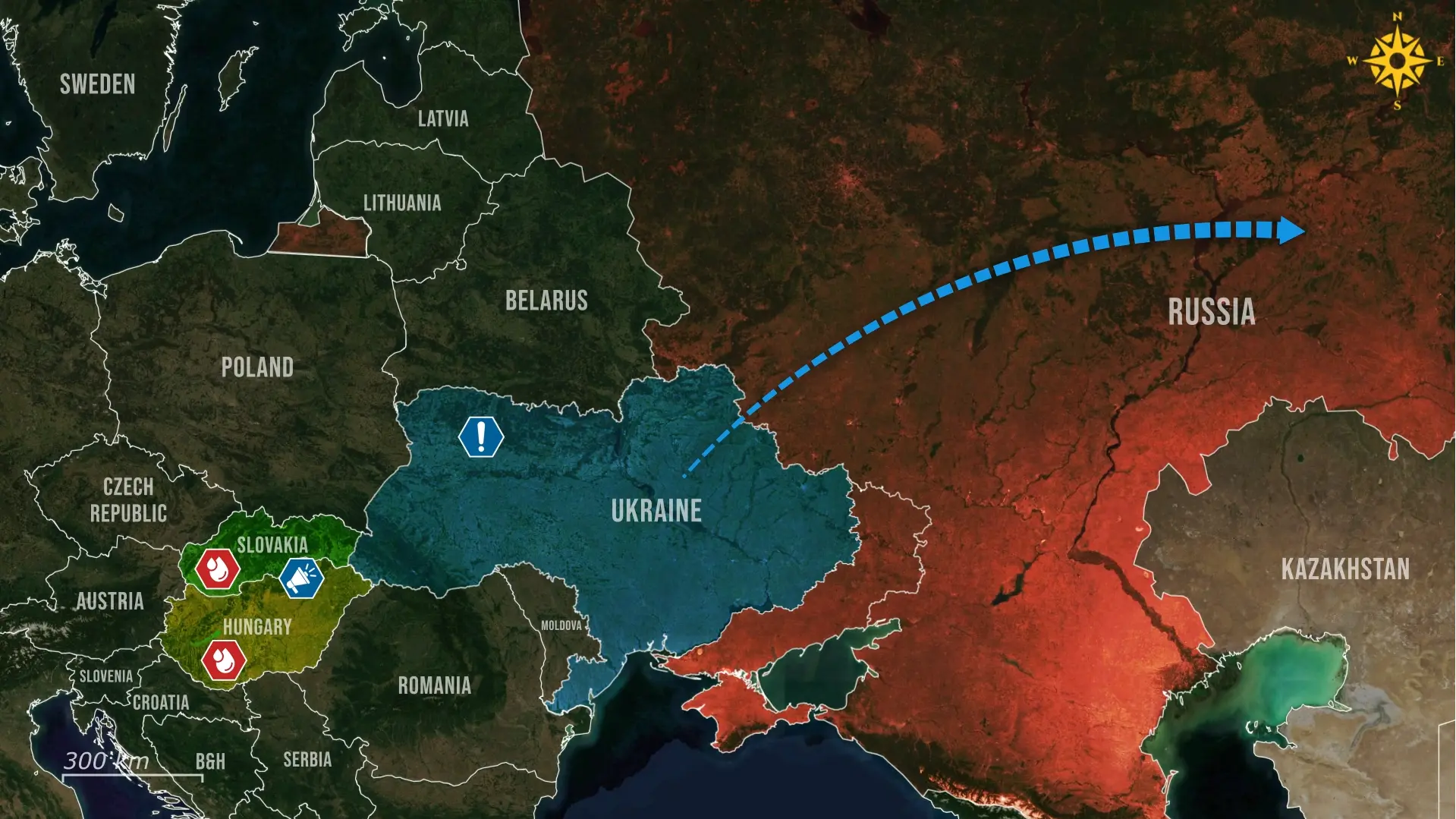
Comments